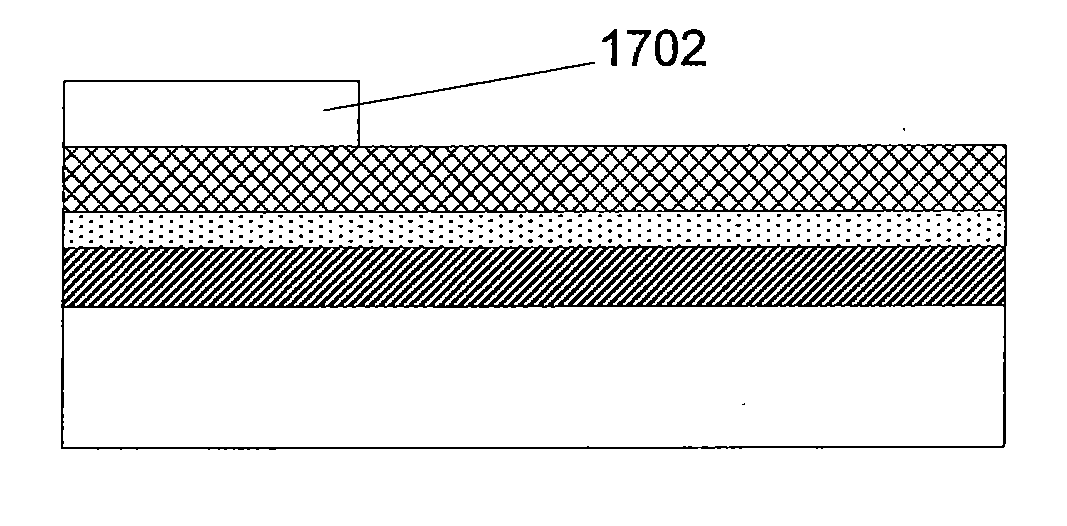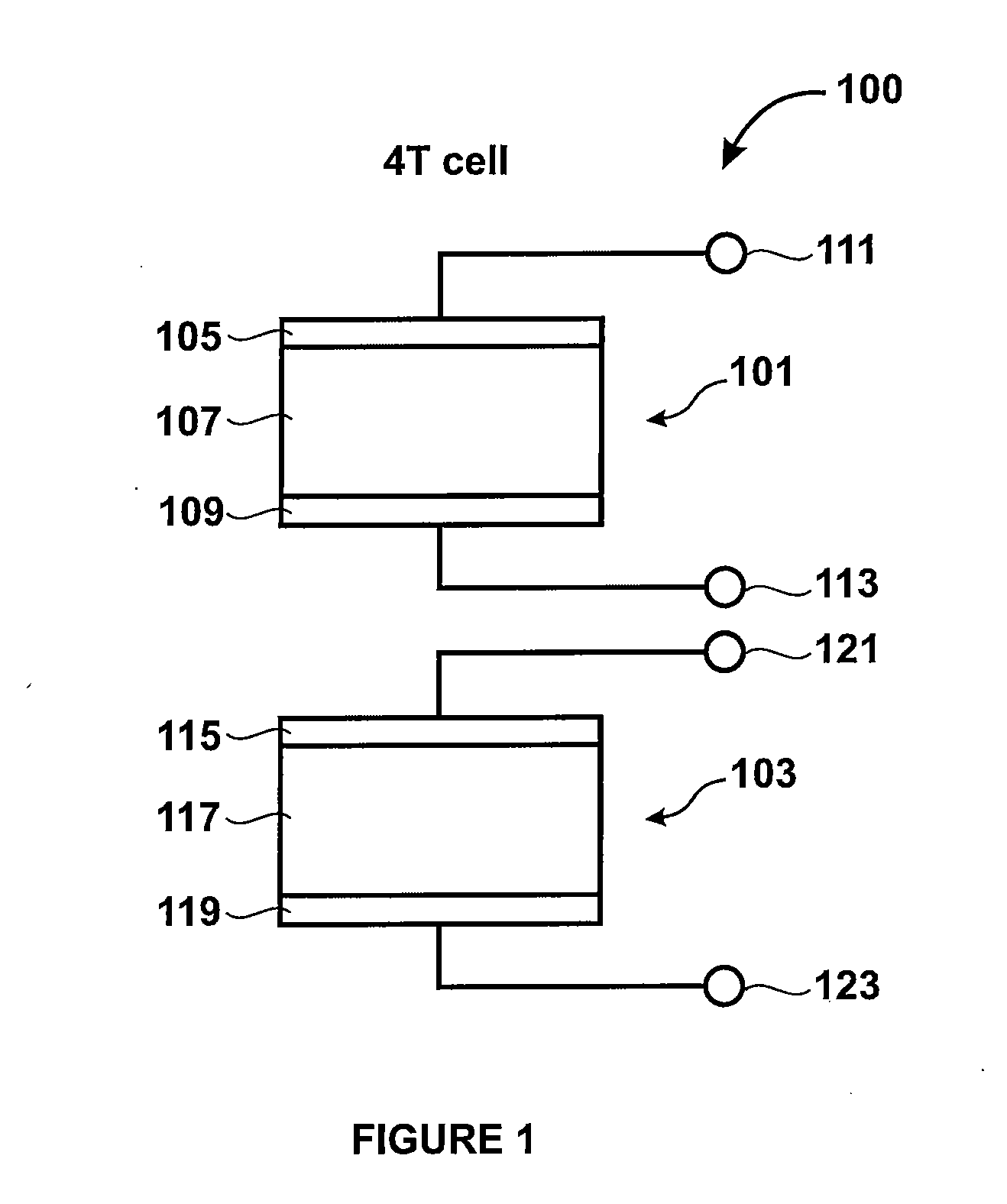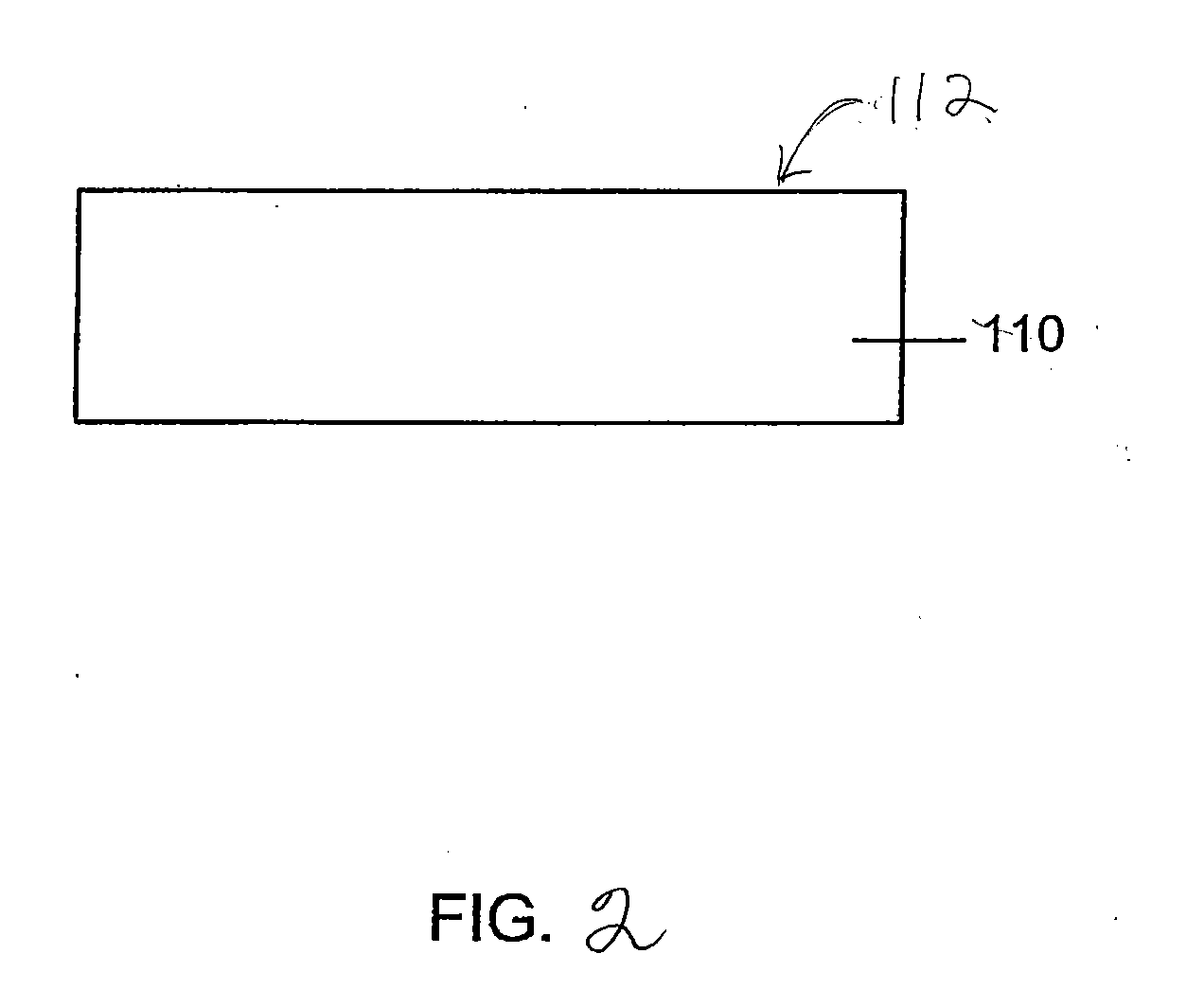Rapid thermal method and device for thin film tandem cell
a tandem cell and thermal method technology, applied in the direction of semiconductor/solid-state device manufacturing, semiconductor devices, electrical equipment, etc., can solve the problems of rapid becoming a scarce resource, depleting, and limited supply of petrochemical fuel, and achieve the effect of less toxic and rapid thermal process
- Summary
- Abstract
- Description
- Claims
- Application Information
AI Technical Summary
Benefits of technology
Problems solved by technology
Method used
Image
Examples
Embodiment Construction
[0018]According to embodiments of the present invention, a method and structure for forming semiconductor materials for photovoltaic applications are provided. More particularly, the present invention provides a method for manufacturing thin film photovoltaic devices for use in tandem solar cell configurations, but can also be used in others. Merely by way of example, the method has been used to provide a copper indium disulfide thin film material for high efficiency solar cell application. But it would be recognized that the present invention has a much broader range of applicability, for example, embodiments of the present invention may be used to form other semiconducting thin films or multilayers comprising iron sulfide, cadmium sulfide, zinc selenide, and others, and metal oxides such as zinc oxide, iron oxide, copper oxide, and others.
[0019]FIG. 1 is a simplified diagram of a tandem photovoltaic cell according to an embodiment of the present invention. The diagram is merely an...
PUM
| Property | Measurement | Unit |
|---|---|---|
| band gap energy | aaaaa | aaaaa |
| transparent | aaaaa | aaaaa |
| band gap | aaaaa | aaaaa |
Abstract
Description
Claims
Application Information
 Login to View More
Login to View More - R&D
- Intellectual Property
- Life Sciences
- Materials
- Tech Scout
- Unparalleled Data Quality
- Higher Quality Content
- 60% Fewer Hallucinations
Browse by: Latest US Patents, China's latest patents, Technical Efficacy Thesaurus, Application Domain, Technology Topic, Popular Technical Reports.
© 2025 PatSnap. All rights reserved.Legal|Privacy policy|Modern Slavery Act Transparency Statement|Sitemap|About US| Contact US: help@patsnap.com



